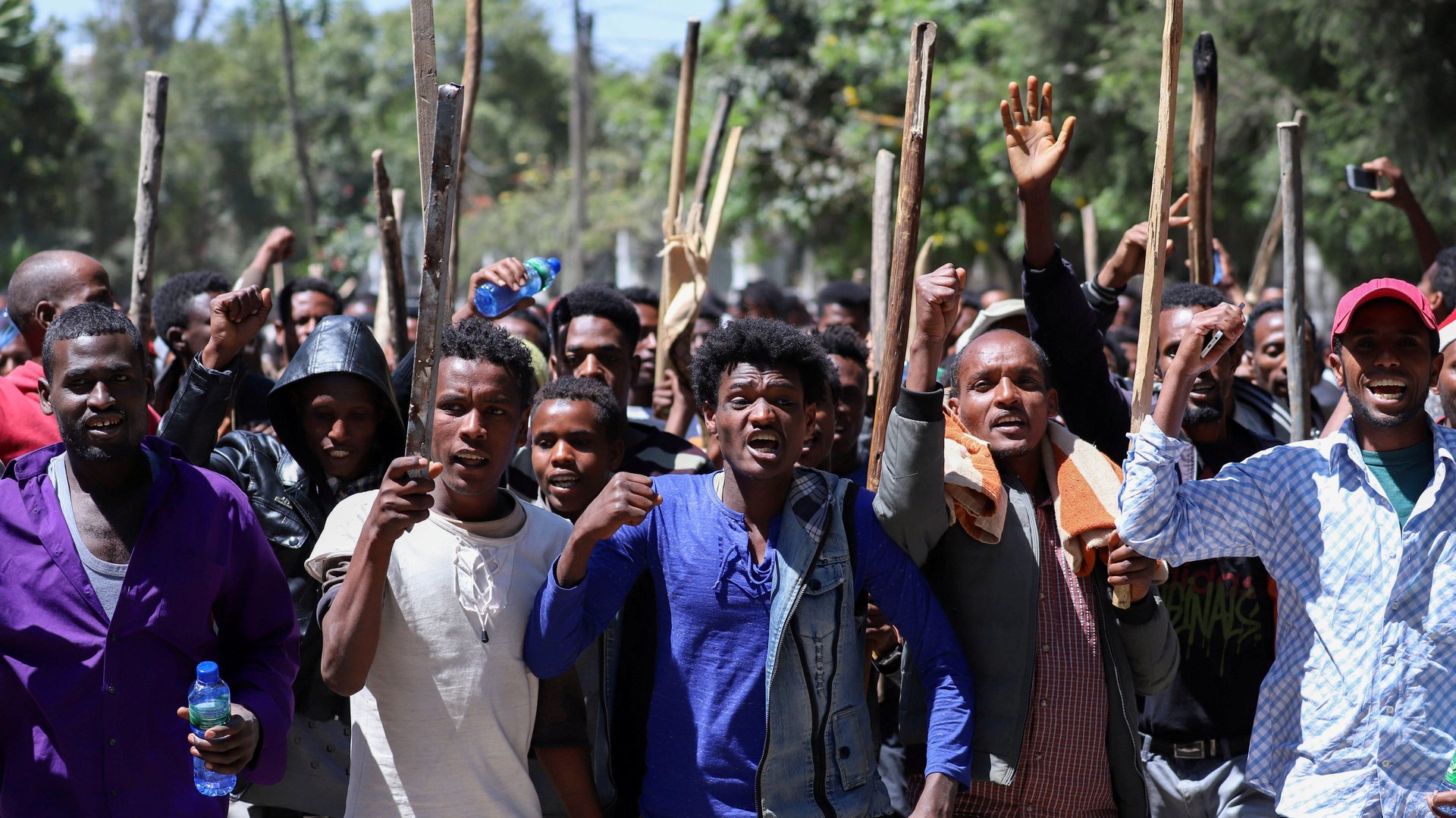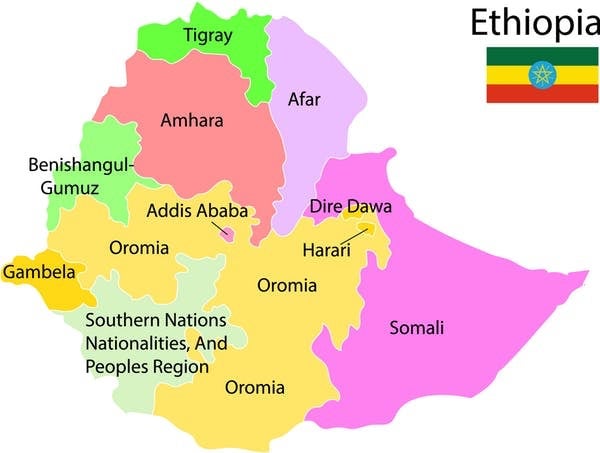Ethiopia’s inability to protect its ethnic minorities is the biggest obstacle to peace
On Oct. 23, Jawar Mohammed—a high-profile activist and media mogul—accused Ethiopia’s security forces of trying to orchestrate an attack against him, a claim police officials later denied. What then followed is quite depressing.


On Oct. 23, Jawar Mohammed—a high-profile activist and media mogul—accused Ethiopia’s security forces of trying to orchestrate an attack against him, a claim police officials later denied. What then followed is quite depressing.
Over the next two days, violence that took ethnic and religious dimensions, erupted in much of the country’s Oromia region and led to the death of 86 civilians. The Oct. 23–25 uprising is just one example.
Ethiopia is currently unenviably leading the world on internally displaced persons. Africa’s second most populous nation is undergoing a massive and under-reported humanitarian crisis, with three million of its people internally displaced as conflicts flare along ethnic lines.
At the center of this crisis is the country’s unique federal system that makes ethnicity as the fundamental organizing principle. Ethnic federalism was formally introduced in Ethiopia in 1995 by the Ethiopian People Democratic Front (EPRDF), after toppling the Derg military junta that ruled the country between 1974 and 1991. The main rationale for ethnic federalism is the promotion of cultural and political status of the nations that were historically marginalized through the introduction of self-government. EPRDF, established a federal system of nine regions (ethnic homelands) based on ethnic identity (unlike any other federations) and two city administrations.

Article 39 of the 1995 Constitution bases key political and economic rights on being ethnically indigenous in these ethnic homelands but not in Ethiopian citizenship. It essentially passes rights to land, jobs in public offices and representation at regional and federal levels to the dominant ethnic group inhabiting a region—”the majority of whom live within a common territory“.
As the regions are not entirely ethnically homogeneous, this provides motives for competition over the regions’ resources and ethnic-based group mobilization. Ethiopia’s population is highly diversified with over 80 different ethnic groups, and nonnative ethnic minorities are found continuously nested inside every of the nine ethnic homelands. Therefore, altogether ethnic federalism and the country’s Constitution put millions of nonnative ethnic minorities in a precarious situation.
Why now?
As ironic as it may sound, the EPRDF has long kept ethnic trouble at bay by hardly practicing the flawed federal system that it introduced. By holding power at the center through autocratic means, it had effectively neutralized the pressure on the ethnic elites to pander to their interest group who have no privilege of electing them. Ethiopia’s strongman prime minister Meles Zenawi had always kept the de facto right of appointing and unseating leadership in each regional state for himself until his death in 2012.
When a three-year long protest weakened the EPRDF leadership in Addis Ababa, it eventually led to the rise of the reformist prime minister Abiy Ahmed in 2018. Abiy, this year’s Nobel Peace Prize-winner, went the extra mile to transform the politics but his opening up of the political space and loosening of state controls has also abolished the state’s temporary protective mechanism—its autocratic rule—against the danger of tribal politics.
Unleashing Elite Competition
At first sight of the possibility of forming a real, autonomous regional state, the fight for the big share of the (small) pie has already kicked off among the Big Two—the Amhara and the Oromo. To whom the capital city Addis Ababa belongs has never been an issue until a significant united Oromo opposition group puts a serious claim of the city that it should be part of its ethnic homeland. As unlikely as this might sound (for many of its residents), this could easily escalate to a serious redistribution problem and become a recipe for disaster.
Since it was founded in 1886, Addis Ababa has kept its unique mixed identity, as a home of almost all ethnic groups and a destination of economically hopeful immigrants from all parts of the country. The city of 7 million people is welcoming to Africa’s wealthy and has a fast–growing middle class. As the headquarters of many international organizations, including the African Union and the internationally competitive Ethiopian Airlines, it is a locus of lucrative investment opportunities and high paying jobs. Ethnic federalism in Ethiopia mixes politics with demography. Regional ethnic elites often compete over the population size of their constituency—the only thing that matter for political power. Consequently, population growth remains high in the country and the demographic transition is slowed. Not only does this make fighting poverty harder but also further instigates instability.
This year, the Ethiopian government decided to postpone population census for a third time as a preemptive measure to avoid exacerbating tensions in the troubled country. In October 2018, two PhD students were stoned to death in the Amhara region of the country, due to false rumor of administering injections and vaccinations as population control measures.
Ethiopia today is a country of soaring youth unemployment where more than one in every four young people in the labor force does not have a job. For many Ethiopians, the prospect of getting a job in areas different from their ethnic homeland is harder than ever. Internal resource movements are severely affected by the political system that incentivizes regional officials to set up and enforce barriers that exclude non indigenous groups from accessing resources in the regions.
That Ethiopia’s ethnic troubles continue after the 2020 election with the current federal system is more than a rare possibility. In the current political environment, it is not moderation but polarization that maximizes support. Hate speech, appealing to bigotry and entitlement—”Ethnic X First”—are not the exception but the rule on social media. Radical ethnic elites are far more popular in their ethnic homeland than any other parties, to the horror of millions of nonnative minorities in their regions.
Sign up to the Quartz Africa Weekly Brief here for news and analysis on African business, tech and innovation in your inbox